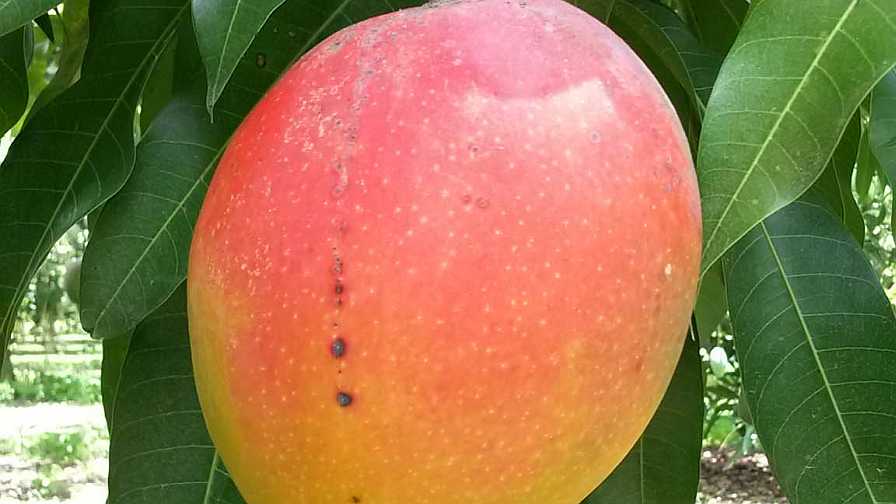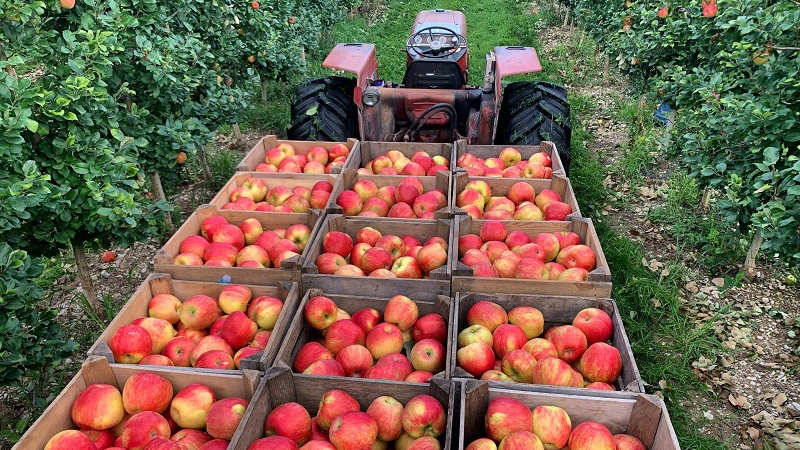More Florida Mangoes, Please! Scientists Are Working on It

University of Florida scientists are working to grow the domestic mango industry in the Sunshine State. Genome sequencing of the ‘Tommy Atkins’ variety is helping them better understand potential for greater profit, export volumes, and wider consumer demand.
Photo courtesy of UF/IFAS
Did you know that Florida is the No. 1 producer of mangoes in the U.S.? And even though production has been increasing modestly over the past decade, consumer demand continues to grow at a greater rate for the popular fruit. A team of scientists at the University of Florida are working hard to grow a domestic industry, and might have found a way to gain ground.
The team recently sequenced the genome of the internationally important ‘Tommy Atkins’ mango – a variety that originated from Florida and that is valued for its very long shelf life, pest resilience, and other key beneficial traits.
“We now have the complete genetic instructions of the ‘Tommy Atkins’ which is a primary export mango,” says Alan Chambers, Tropical Plant Geneticist at UF/IFAS’ Tropical Research and Education Center. “We can now use this as a tool to answer questions like, ‘Why does Tommy Atkins have such a great peel color?’ ‘Why is Tommy Atkins so disease resistant?’ ‘What makes Tommy Atkins so great for shipping?’”
The U.S. is a major global importer of mangoes, according to USDA stats. Estimates show market size for imported mangoes to be 250,000 tons, coming mainly from Mexico and other Central American countries.
Chambers and team believe their work is an essential tool that will be used to help grow mango varieties close to home that consumers and farmers desire.
“With these instructions we can start to compare different plants,” he says. “For example, those instructions can help us understand why one plant has a red peel versus a yellow peel, or why one mango tastes like pineapple. The same instructions help us to find the DNA responsible for those differences.”
Results of the study “The ‘Tommy Atkins’ mango genome reveals candidate genes for fruit quality” were published recently in BMC Biology, an open access peer-reviewed journal. Chambers expects this will be the guide researchers have been looking for to start comparing different varieties that can help explain what creates different traits among the many varieties.
In the case of the ‘Tommy Atkins’ and as part of the UF/IFAS breeding program, this is a milestone.
“This will eventually benefit the development of new mango cultivars that are better than what we currently have and faster through plant breeding,” he adds. “The global initiative connects expertise, technology, and interested researchers that create true synergy. None of us can do this alone.”









